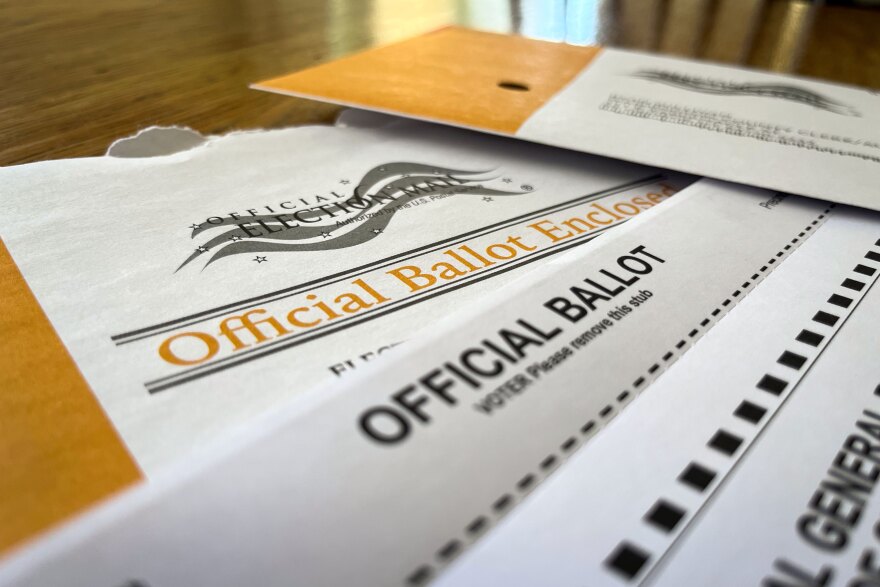Tens of thousands of Utahns will cast ballots this year for municipal elections across the state, but some have raised questions over what is — and isn’t — required for their votes to count on Election Day.
One Reddit user in Orem posted a photo of the instructions on their Utah County mail-in ballot. It said to “sign your ballot and include the last four digits of your Utah Driver License, State Issued ID, or Social Security Number.”
But there’s no space to add those digits. And that information isn’t required — yet — to cast a vote in Utah.
That additional voter identification will become a requirement in 2029. Earlier this year, the Legislature passed a sweeping reform of Utah’s popular vote-by-mail system. Some counties are experimenting with implementation ahead of the 2029 deadline and can provide a space for that information if they choose.
Utah County Clerk Aaron Davidson said the discrepancy in his ballot envelopes is because he changed his mind after collecting ID numbers for the August primary.
“We found out that there were some issues, and we decided not to put it on for this general,” he said. “Unfortunately, we paid for instructions to go in both the general and the primary, and we went ahead and sent those out.”
Davidson said Utah County was one of five across the state that gave primary voters the option to provide an additional way to verify identity on their ballots to supplement their signature. He said that it didn’t go as well as he would have liked.
“We started keeping track of how many we received where the signature didn't match, but the four digits did match,” he said. “We logged 790 ballots where the signatures were just off.”
That did not sit well with Davidson. In his eyes, it would be a lot easier to steal someone’s Social Security number than forge a signature.
“The problem is how many times has it been reported that there's been a data breach?” he said. “I can't guarantee that your four digits aren't known by many more people.”
So, Davidson decided to eliminate the space for ID numbers on Utah County ballots for November’s municipal election. In hindsight, he said they should have sent different instructions and he’s “sorry for the confusion there.”
“We're just trying to save taxpayer money by not having to reprint the instructions.”
Utah voters do not have to provide anything in addition to their signature for their vote to count this year.
Davidson said the clerk’s office put out several social media posts explaining the discrepancy and plans to send out a mass email to registered voters in the coming days. He is also explaining the situation to anyone who contacts his office, confused about the instructions that came with their ballots.
Davis County Clerk Brian McKenzie is giving his voters the option to add that additional information to their ballots this year. Successfully implementing the change, he said, is all about messaging.
“We've let [voters] know that if you put that on there, it's used to help validate the ballot,” he said. “And we let them know that in 2029 it will be required at that point, but we're very clear that it's not currently required.”
So far, he said, Davis County voters have been receptive to the change.
“We're seeing somewhere between 85% and 95% of our voters are recording those numbers on their envelopes, and that's going through the process and being verified,” he said.
According to state law, there must be space for a four-digit identification number on all mail-in ballots after this year’s municipal elections.
But there is one important change in place this year. For your ballot to be counted, it must be in the possession of an election official no later than 8 p.m. on Election Day.
For McKenzie, direct feedback from voters is one of the best ways to ensure an election runs smoothly.
“We want to help, and sometimes we are thinking in one direction and we've missed something,” he said. “It's when a citizen reaches out to us and points something out to us that we learn, and hopefully we're able to respond quickly.”
If you have questions about your ballot, contact your county clerk’s office. Election Day is Nov. 4.






